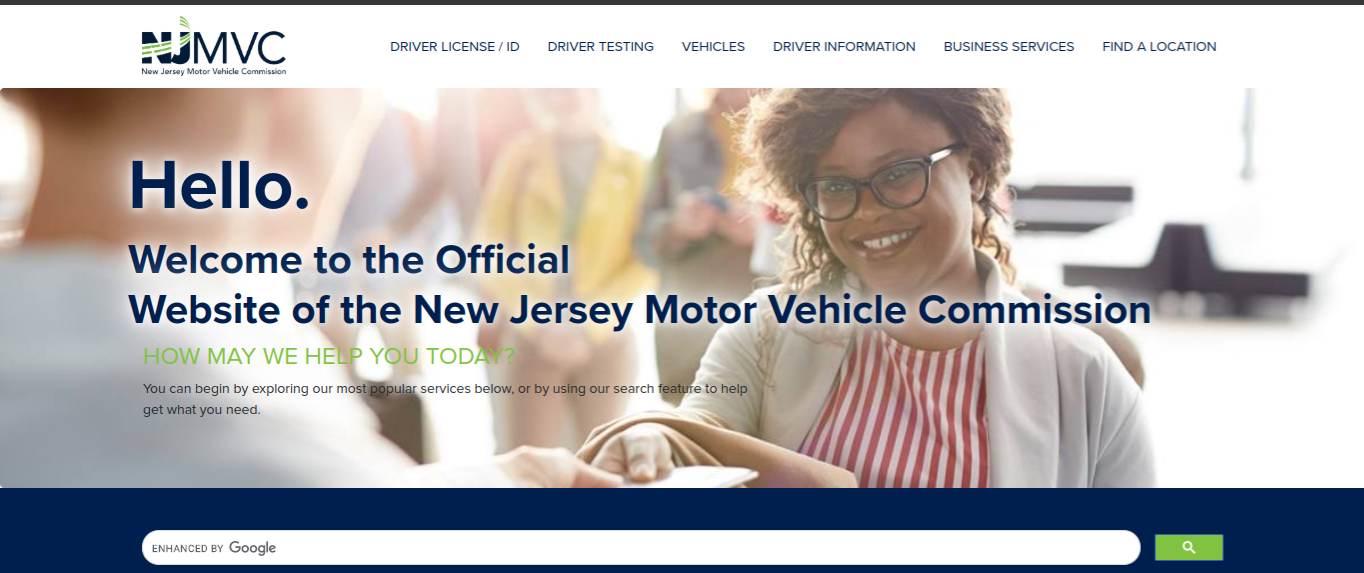Pay Ticket Here or Visit the Website
Before paying any surcharge, it is essential that you completely understand what it is and why you are paying it. For example, DMV charges are imposed in New Jersey when you break a traffic rule. In such a case, a ticket is issued to the violator. At the same time, a certain number of points will be added to their driving license. When these points exceed over six over three years, a fine of $100 will be charged annually for the next three years. In addition, an additional charge of $25 will be added for every extra point over six.
For example, if you have nine violation points over 36 months, you will have to pay $100, plus $75 for your three additional points, making it a total of $175 yearly for three years. It will add up to a total of $525 over three years. Apart from that, other DMV charges imposed are as follows:
- Operating a vehicle with no driving license or an expired permit generates a surcharge of $100.
- The surcharge for a suspended driving license is $250 annually.
- Driving an uninsured vehicle can cause a surcharge of $250 annually.
- She was driving while intoxicated is a surcharge of $1500 per annum.
Pay Ticket Here or Visit the Website
Methods to Pay Your NJSurcharge in New Jersey
There are majorly four different methods to pay your surcharge. These are as follows:
- You can use your credit or debit card to pay online by visiting the official NJ surcharge website – www.njsurcharge.com. It is convenient for all major debit and credit cards. However, a processing fee of 2-3% may be charged by banks for this method.

- You can call an official NJ toll-free number (844)424-6829 and pay using your ATM card.
- Direct payment at the Western Union Money Transfer office in the USA
- Pay through a cheque or money order
Is www.njsurcharge.com Still Functional?
The official website for the payment of surcharges in New Jersey is www.njsurcharge.com. This website, however, is not functional anymore. The courts of New Jersey have permanently shut down njsurcharge.com. However, they have moved this website to a new, upgraded NJ surcharge portal on the NJ State website. The payments can still be conveniently completed in this New State web portal.
Also Read: How To Pay New Jersey Traffic Ticket at NJMCDirect
How Many Points Are Charged For Speeding Tickets in New Jersey?
The fines are charged per your Overspeed than the limit range in New Jersey. Therefore, you will be charged as per the speed you were going over. The content of speeding charges varies from $85 to $260.
- If you are over by 1 to 9 mph, you will be charged 2 points, and the fine is $85.
- If you exceed the limit by 10 to 15 mph, you will be charged $95 and 2 points on your license.
- $105 is charged with 4 points on the license for going 10 to 19 mph over the accepted limit.
- If you are 20 to 24 mph over the limit, then 4 points with a fine of $200 are charged.
- Forgoing 25 to 29 mph over the speed limit, you will be charged $220 with 4 points.
- If you are overspeeding 30 to 34 mph, 5 points with $240 are charged.
- For 35 to 39 over the limit, you will be fined $260 and 5 license points.
Note:- You will have to pay a fine of $34 if you file overspeeding charges in a court of law.
Conclusion
Surcharges are an unavoidable part of daily life. They are complicated and confusing. Most of us pay them without any knowledge or investigation into the matter. However, it is essential to know how these things work. You need to analyze your surcharges and check them properly before paying them.
There are many simple ways of spending your surcharges. It can be done online or offline, according to your convenience. The various options regarding this are online payment through the new portal in the NJ State website (the former surcharge website being closed now), paying through a phone call, or at the Western Union Money Transfer office or through a cheque money order. One can choose the best suitable option and quickly keep their surcharges in check.